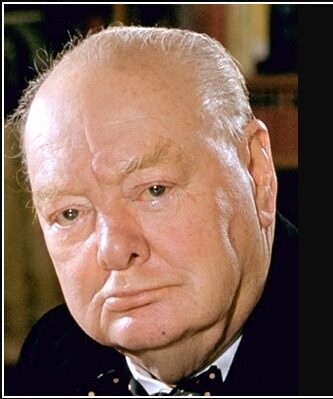When your words make a statement, does your voice ask a question?

There’s an increasing tendency these days, especially in younger people, to adopt a style of speech in which the pitch of their voice rises at the end of each sentence. It results in the simplest declarations sounding like a question.
For example:
“Hi, my name is Martha Hayes? Thank you for making the time to attend this session today? I’m here to discuss our marketing strategy for the next twelve months?”
Like most things in life, this behaviour has been studied around the world and quite a lot is known about it. None of which is good.
It’s called upspeaking, but it will definitely bring you down
Researchers have found that it’s a growing habit in many parts of the world. In America, it’s thought to have originated among affluent teenage girls in Southern California where it’s known as Valleyspeak.
Elsewhere in America, it’s common in parts of the rural Upper Midwest where it has been influenced by Scandinavian speech patterns resulting from the migration of many Norwegians to Minnesota and North Dakota.
In Britain, it is often called Australian Question Intonation and blamed on the popularity of Australian soap operas among teenagers. Neighbours is said to be the main culprit.
There are plenty of other theories too but, whatever its origins it’s an unwelcome inflection. (Or should that be infection?)
It suggests you lack confidence

In Language and Women’s Place, linguist Robin Lakoff argues that women are socialized to talk in ways that lack power, authority and confidence.
Speaking with a rising pitch at the end of your sentences signals that you haven’t finished making your point and don’t wish to be interrupted, suggesting that you may have a fear of contradiction.
Research suggests that the habit is more common among young women than men, but discussing this aspect of the trend encourages a mass of feminist flag-waving, so we’ll just say it seems to us to be so.
In an interview with the BBC, voice coach Sharyn Collins is forthright when discussing upspeak.
“It’s perfectly fine in Australia, New Zealand and America,”
Sharyn Collins
she says in her perfect elocution,
“but not here in the UK, I believe. We’ve adopted it in a different way…to me it’s not the language of business and power.”
Sharyn Collins
Employers and interviewers don’t like it either
Hank Davis PhD, author and Emeritus Professor of Psychology at the University of Guelph in Ontario, Canada wrote:
“It’s nasty habit. It is the very opposite of confidence or assertiveness. It’s gotten all out of control. These days even statements about which there should be no question or doubt are presented in this tentative, timid and deferential manner.”
Hank Davis PhD
What impression does this make on business leaders and senior managers? Writing in Forbes magazine, executive coach and author John Baldoni recalls an incident that gets to the essence of the problem immediately.
A journalist, one of several women involved in a discussion programme on US radio told how, when she was interviewing a senior business leader for an article she was writing for Business Week, he told her she sounded like his granddaughter. It was not meant as a compliment.
Language coaches are doing great business teaching more credible speech patterns
It’s easy to see why. Professor Davis says:
“I teach a 4th year university course in which part of the requirement is a seminar presentation. Students used to stand up and share the results of their research in a way that conveyed their confidence and knowledge. They no longer do. Even if they do feel confident, their culture now mandates that they dial it back and sound like this: My name is Jennifer? My seminar today is on bystander apathy? There’s quite a bit of research on this topic?”
Hank Davis PhD
Make a recording of your voice and listen. Have you caught the bug?
Don’t ask your friends to tell you because the chances are they do it too and it sounds perfectly normal to their ears.
If you find that you find you’re sounding even a little like a character in an Australian soap opera, practice delivering sentences that sound more like declarations. Listen to professional broadcasters and notice how they vary their pitch but always lower their tone very slightly at the end of their sentences.
If you have an amateur drama group in your community, you might want to go along and do a few small speaking parts with them. Their producer will soon cure you.
If you sense that we might be exaggerating this problem, it helps to remember another definition of it, coined by British comedian Rory McGrath:
“the moronic interrogative”
Rory McGrath
If you liked, then please subscribe to our YouTube Channel for video content. You can also find us on Twitter, Facebook, Instagram and Linkedin.
You will also like
Read more articles from our weekly series
The Business Mentor





